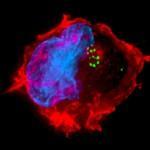In a study published in the most recent edition of Nature, scientists studied the effects of HIV on the metabolism of gut bacteria. It is well known that HIV infects the multiple lymph nodes making up the gut associated lymphoid tissue and causes degradation of anatomical structures of the gut villi. The result leads to microbial translocation and systemic immune activation. These authors thus set out to show if HIV has a unique impact on resident gut microbiota metabolism.
Different study groups were identified: i) HIV positive patients; ii) healthy controls (both lean and obese healthy adults); iii) patients with C. difficile-associated diarrhoea and iv) patients with systemic lupus erythaematosus (not expected to directly impact on gut microbe metabolism) and their microbial make-up studied. The authors report that each group of diseases showed different metabolic alterations, suggesting that distinct diseases may impact on gut microbe metabolism in different ways. These findings prompted the authors to state that “The impact on the gut microbial activity, and thus the metabolite composition and metabolic flux of gut microbes, is therefore disease-dependent”.
The authors were able to pin-point the microbial metabolic changes caused by HIV infection down to four amino-acids. The link between gut microbe metabolites and health still needs to be determined, but it is possible that alterations in microbiome metabolism and health paves the way to new treatments and how we investigate disease. The authors state that “an urgent need in gut microbiota research and clinical studies to measure disease-specific metabolic alterations” is required. Could this be a shot in the arm for probiotics being able to supply appropriate supplements to regulate gut bacterial metabolic function and modulate pathology?
Article review by Braden Kenny, an intern from the University of Toronto
